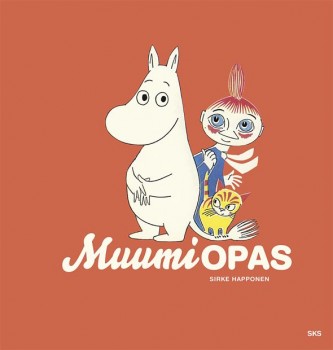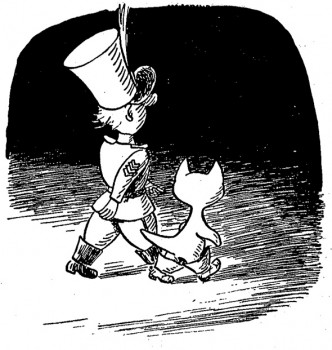Search results for "herbert lomas/www.booksfromfinland.fi/2004/09/no-need-to-go-anywhere"
The ladies’ dining club
30 September 1994 | Archives online, Fiction, Prose
From the novel Luonnollinen ravinto (‘A natural diet’, WSOY, 1994). Interview by Tuva Korsström
My dear, wise and ever-faithful secretary, colleague, friend and right hand, you who, without counting the hours, have been my helpmeet in many awkward situations, and not only in work matters but in others, all sorts of matters that belong to my private life and particularly those, you have remembered things that I have found hard to remember, like the birthday of my wife or some important colleague, and at Christmas you have always remembered me with some small gift, always different and always carefully chosen, of which I hardly need say how much it has warmed my heart, when I haven’t been able to do better than a single miserable hyacinth. And you have always reminded me of engagements I haven’t been able to keep track of: dentists, barbers, garages, less important and more important receptions, lunches and dinners, but what is most important, and why l am most grateful to you, is that in your generosity and open-mindedness – your eternal femininity – you have understood that a person in my position may sometimes find himself in situations whose consequences he cannot always control, and that he begins to be bothered by all sorts of people, although they should understand from the smallest hint that their company is not required, and you have sensitively but firmly turned them away, sometimes telling a little lie, and you have never, ever taken a moral stand or judged my actions, but have averted your eyes, having made the decision to accept that your boss is anything but perfect. For that reason I wish to express my gratitude to you; but not, however, unreservedly. Our seamless collaboration, my ever-lovable secretary, has meant that something belonging to me has begun to belong to you, that you have become part of me just as I have become part of my wife, even before she touches me with her fork. So I have no doubt that you, too, could appear at the dinner that is soon to be arranged. Bon appetit! More…
Practically public
31 December 2002 | Archives online, Fiction, poetry
Poems from Koko tarina (‘The whole story’, Tammi, 2002). Introduction by Anselm Hollo
Pan shot
A whitewashed wall, small windows
advent calendar peepholes at the end of darkness,
lit-up squares
One two three kitchens awake at 7
each tenant bends over a kettle of porridge
in the gurgling coffeemaker’s soundscape,
opens the refrigerator
see the hunter in action: let’s spear this yoghurt
and the building across the way testifies to all of this
practically public activity
the evening’s closure of curtains, turnings-off of the light,
nocturnal breastfeedings. Talking windows. A light comes on at: 2:54 AM
– what’s up now?
Is someone thinking about a bird she encountered at the cemetery? More…
How cool is Stinky?
30 November 2012 | This 'n' that

Moomintroll and Mymble: positive role models
‘What reigns in Moomin Valley is a rock-hard hierarchy of those who are cool (Snufkin, Moominmamma, Little My), those who need to be those who are cool (Moomintroll, the Snork Maiden, Sniff, one or two Whompers and Toffles), and those who are absurd (the Hemulen, the Fillyjonk, the Muskrat)’, noted Pia Ingström in her review (Books from Finland 2/2008) of Sirke Happonen’s dissertation on Tove Jansson’s characters.
Snufkin? Fillyjonk? The Moomin world, created by the versatile Finland-Swedish writer and artist Tove Jansson (1914–2001), is peopled with funny-shaped Moomins and a great variety of other creatures who may look a bit odd at first but who are very… human. Jansson’s books have been translated into more than 40 languages. More…
Life: facts and fiction
10 September 2014 | Extracts, Non-fiction
 In his latest book, the architect and author Arne Nevanlinna (born 1925) recalls, among other things, his Helsinki childhood and family, the wartime period, his fellow architect Alvar Aalto, various aspects of the spirit of the times, his own work and writings. His first novel Marie was published in 2008. Extracts from Arne. Oman elämän kintereillä (‘Arne. On the trail of one’s life’, Siltala, 2014)
In his latest book, the architect and author Arne Nevanlinna (born 1925) recalls, among other things, his Helsinki childhood and family, the wartime period, his fellow architect Alvar Aalto, various aspects of the spirit of the times, his own work and writings. His first novel Marie was published in 2008. Extracts from Arne. Oman elämän kintereillä (‘Arne. On the trail of one’s life’, Siltala, 2014)
My attitude to my own identity has developed from the unconsciousness of childhood, the uncertainty of early adulthood, the artificial arrogance of middle age and the self-analysis of approaching retirement, to my present situation.
Despite the fact that my first book had some degree of success, it took many books before I felt I was a real writer. The process continued for well over ten years, by which time I was already over eighty. Before that, I thought of writing as a way to pass the time and combat loneliness. I imagined that I was writing for a living, and that I lived in order to write. I was in the fortunate position of not to think about my income.
Even then, I knew that this was just a catchphrase for the event that it occurred to someone in the audience to ask me why I wrote. That never actually happened. No wonder, as both question and answer would have been unnecessary, to put it mildly, and stupid, to put it harshly. More…
Tuula Kallioniemi: Rottaklaani [The rat clan]
24 February 2009 | Mini reviews
 Rottaklaani
Rottaklaani
[The rat clan]
Helsinki: Otava, 2008. 192 p.
ISBN 978-951-1-23159-2
€ 16, hardback
Tuula Kallioniemi (born 1951) manages to deal with difficult issues without resorting to conventional solutions. Ykä, who is nearly 12, suffers from the normal anguish of early adolescence until the CP [cerebral palsy]-disabled Sami pushes his wheelchair into Ykä’s life. The boys decide to get the better of Antikainen who is bullying Sami, but in order to carry out their plan they need the help of quadraplegic Pete and Susanna, who has MBD [minimal brain dysfunction]. Kallioniemi’s literary prescription for the prevention of illness in young people is a simple one: we must all be friends with one other, be allowed to express wonder out loud, and remember that laughter is the best therapy. Kallioniemi’s merits are her verbal skills and her natural cultivation of situation comedy.
Grown-up talk
13 June 2013 | Non-fiction, Tales of a journalist

Illustration: Joonas Väänänen
Would you say this to someone face to face? No? But anonymously, in writing, you do. Columnist Jyrki Lehtola takes a look at the way Finns tend to behave on the Internet
Babies. They’re cute. They have to be – they are babies after all. And their parents are lovely people, because they have those cute babies. Even they have a hard time believing how mellow and happy they are now that they have a baby.
But what happens to parents when the baby falls asleep and they get to creep off to the Internet? They completely freak out and turn into belligerent trolls. More…
The magic box: childhood revisited
25 December 2014 | Essays, Non-fiction

The tin soldier and the Blue Cat. Illustration: Usko Laukkanen
A tribute to Oiva Paloheimo’s children’s novel Tinaseppä ja seitsemän (‘The Tinsmith and the Seven’, illustrated by Usko Laukkanen, WSOY, 1956)
I’ve happened upon this (Christmassy) text of mine – first published in Books from Finland back in 1995 – when sorting through my papers as I begin to contemplate my retirement. With it I would like to offer my goodbyes, and many thanks, to you – to our readers, for whom I have been commissioning, editing and writing texts for the past thirty-one years – it’s time to do other things; time to read the books that still remain unread…
A dusky winter’s afternoon. Outside, soft and grey, a little snow is falling. I am sitting in our living-room, in an armchair covered in a pale yellow boucle fabric, my legs curled up, eating a carrot. In my lap is a book which I have fetched from the library after school. Conversation, the faint clattering of crockery, a singing kettle, the smell of food: grandmother and mother are cooking supper in the kitchen. My little sister is asleep.
But these sounds and the room around me do not really exist: there is only the world of make-believe in which Tiina sets off on her adventures with the Blue Cat, the Tinsmith, the St Bernard dog, the star and the spider: that world is a magic box which is able to contain all of childhood. More…
The love of the Berber lion
30 December 2008 | Fiction, Prose
A short story from the novel Berberileijonan rakkaus ja muita tarinoita (‘The love of the Berber lion and other stories’, WSOY, 2008). Introduction by Janna Kantola
The lion’s name was Muthul. He was an old Berber lion from the Atlas Mountains. He had a black mane, a black tail with a bushy tip and the scars of many battles on his hide.
He had grown up as a lion cub in the royal palace at Carthage at the time when the Romans, led by Scipio the younger, destroyed the city with fire and sword. The palace was set ablaze, a bloody battle ensued in the gardens, Romans impaled on arrows lay strewn in the rose bushes, Carthaginian blood dyed the water in the fountains. Someone had let all the palace animals, wild and tame alike, out of their cages; they were running around wildly, killing each other in the grip of panic, then disappeared inexplicably. More…
A happy day
12 August 2010 | Fiction, Prose
‘Muttisen onni eli laulu Lyygialle’ (‘Muttinen’s happiness, or a song for Lygia’‚) a short story from Kuolleet omenapuut (‘Dead apple trees’, Otava, 1918)
‘Quite the country gentleman, eh, what, hey?’ says Aapeli Muttinen the bookseller. ‘Like the poet Horace – if I may humbly make the comparison, eh, dash it? With his villa at Tusculum, or whatever the place was called, given to him by Maecenas, in the Sabine hills, wasn’t it? – dashed if I remember. Anyway, he served Maecenas, and I serve – the public, don’t I? Selling them books at fifty pence a copy.’
Muttinen’s Tusculum is his little plot of land in the country. A delightful place, comforting to contemplate when the first signs of summer are beginning to appear, after a winter spent in town in the busy pursuit of Mammon, under skies so grey that the wrinkles on Muttinen’s forehead must have doubled in number. A summer paradise of idleness… More…
The ring
31 December 1998 | Archives online, Fiction, Prose
A short story from Irti (‘Away’, Gummerus 1998). Introduction by Milla Autio
When the car turns into the drive I know that this time it has happened. That this time it has not been for nothing that I have felt cold fear creep inside my stomach. And for a moment, as Vangelis gets out of the car and looks at me and Irini sighs deeply and grabs me as if for support, I feel nothing.
The landscape is the same, the trees and the burnt grass and the intoxicating scents of late summer. And the sounds, too, are the same; the merry cries of children farther off and the clatter of dishes from the kitchen. Later, of course, my landscape will shudder and quake from its place, fly on its way like disturbed papers. That was something you shouted at me about; other such incidents I do not remember, but when a gust of air from the door caught your papers you went mad. That moment is inscribed in my memory, caught there like the words on the pages of a book. More…
Markku Karpio: Myrskyvaroitus [Storm warning]
24 February 2009 | Mini reviews
 Myrskyvaroitus
Myrskyvaroitus
[Storm warning]
Helsinki: Otava, 2008. 237 p.
ISBN 978-951-1-23000-7
€ 12, hardback
The main character’s quest for identity is a permanent theme of books for children in early adolescence. 11-year-old Emil, who lives with his mother in the outer Finnish archipelago, drifts into an emotional storm at an important moment in the construction of his identity. A storm warning on the radio means Emil’s African father will not be able to reunite with his son. The novel depicts the identity problems encountered by children of parents from different cultural backgrounds and their need for understanding from a wider perspective. A sub-plot concerns Emil and his new friends, and the strengthening of trust and tolerance between them. Markku Karpio (born 1961) portrays young boy’s tentative explorations sensitively.
Pomp and circumstance
31 October 2013 | Fiction, Prose
Extracts from the novel Bär den som en krona (‘Wear it like a crown’, Schildts & Söderströms, 2013). Sanna Tahvanainen interviewed by Janina Orlov
A kick in the stomach – yes, that is what it feels like each time I catch a glimpse of the Crystal Palace. The miniature on Albert’s desk has finally grown to maturity. The great greenhouse towers where once the elms stood. On a clear day the sun dances along the glass, making it glisten, the whole place all but blinding us. One is forced to squint on approaching it. One reaches out a hand, and when it touches the glass and steel, one knows one is there.
The grand opening is a mere five days hence. I step inside, he will be there somewhere. He is unaware of my arrival; it is to be a surprise. These last months he has been gone long before I have woken, and arrives home only once I am asleep. He seems quite indefatigable, neither sleeps nor eats properly. These last weeks there has been nothing else on his mind but the Great Exhibition. More…
The nursemaid
Lapsenpiika (‘The nursemaid’), a short story, first published in the newspaper Keski-Suomi in December, 1887. Minna Canth and a new biography introduced by Mervi Kantokorpi
‘Emmi, hey, get up, don’t you hear the bell, the lady wants you! Emmi! Bless the girl, will nothing wake her? Emmi, Emmi!’
At last, Silja got her to show some signs of life. Emmi sat up, mumbled something, and rubbed her eyes. She still felt dreadfully sleepy.
‘What time is it?’
‘Getting on for five.’
Five? She had had three hours in bed. It had been half-past one before she finished the washing-up: there had been visitors that evening, as usual, and for two nights before that she had had to stay up because of the child; the lady had gone off to a wedding, and baby Lilli had refused to content herself with her sugar-dummy. Was it any wonder that Emmi wanted to sleep? More…

